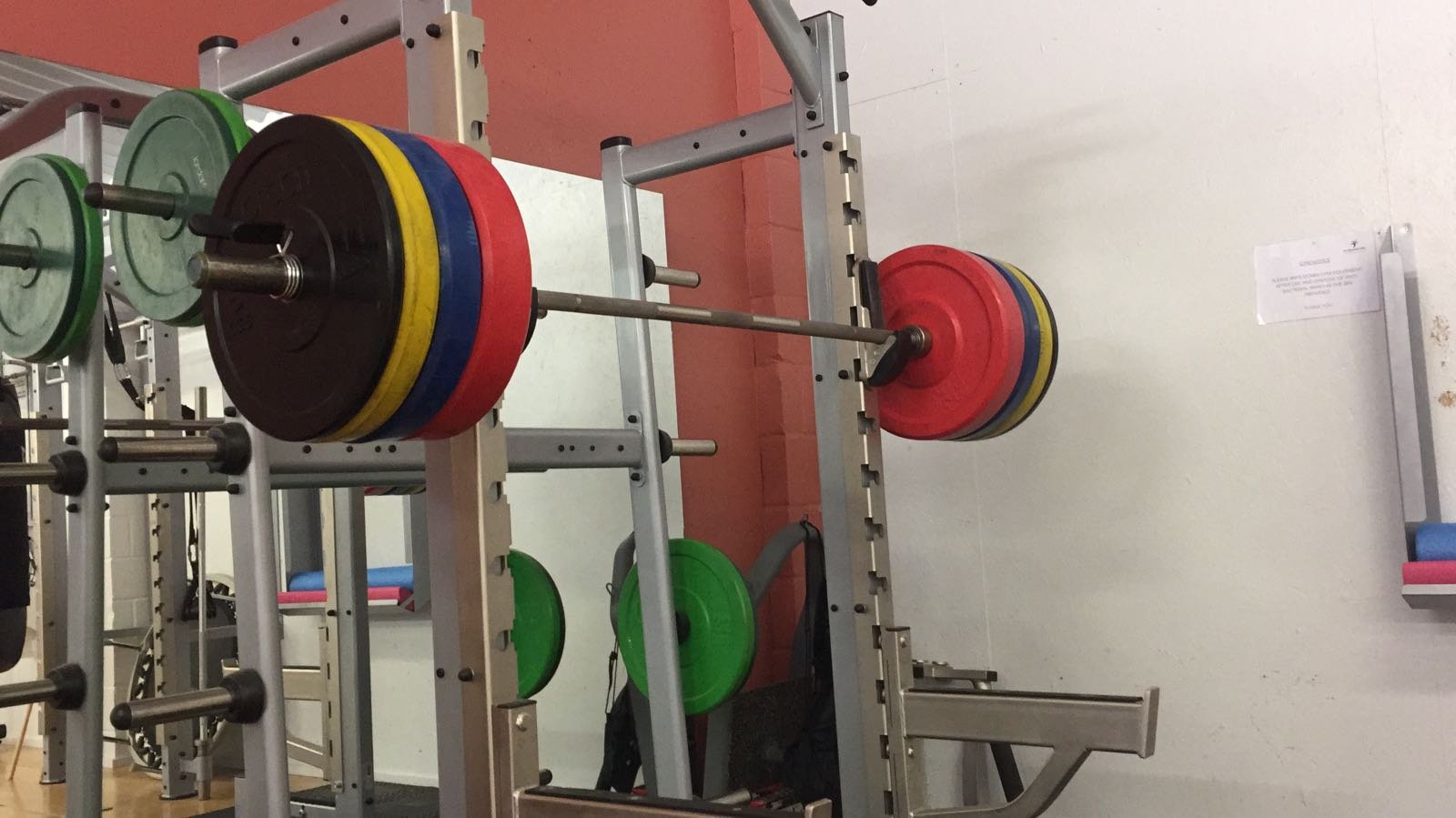Will I bulk up lifting weights as a triathlete?
In this article, Coach Tim explores the common misconception that lifting weights will make you bulk out. For an endurance athlete, bulking up doesn’t conjure images of better performances, but Tim explains how a proper strength and conditioning programme can add to your endurance performance gains.
Endurance sports and lifting weights aren't generally associated. It's always been a hotly debated subject, but then as we now know, you can no longer just train for the swim, bike and run without including an element of strength training.
Whenever you suggest weight training to a cyclist, runner, or triathlete, one of the athlete's first concerns is whether putting on additional muscle mass will hurt their sport-specific performance. Will more muscle make you slower by increasing your total body weight or faster by increasing your strength and resilience?
To help support the increasing demands and avoid injury, employing the correct type of strength training (lifting heavy weights, sometimes explosively) can improve exercise economy, lactate threshold, and anaerobic capacity. These are all physiological markers of performance, and economy and lactate threshold are two of the most important triathlon ones. The third is VO2Max, which we know cannot be improved by strength training.
And most importantly, the improvements in economy and threshold are known to improve endurance performance (like Time-To-Exhaustion or Time Trial times) over a wide range of time spans, from a few minutes to an hour and longer, so why won't you start strength training?
First, to bulk up, let's understand what is going on.
Muscle hypertrophy is the adaptation our muscles experience from continual exposure to progressively overloaded forms of resistance training, increasing our muscle fibre size, both in diameter and length. Hypertrophy (making muscles bigger) is not the same as increasing strength (maximum force production).
So, if you do it right, you'll lift heavy, and the number of reps will be low. This is the way to gain strength, but it's not the way to gain muscle mass. To gain mass, as you get stronger, you'd need to do more reps, which is something bodybuilders and others in the strength and conditioning world have known for decades. To gain mass, you also need to have a surplus of calories available. With all the triathlon training you do, it is unlikely that you'd get this surplus of energy without a dramatic change to your diet.
Athletes looking to increase muscle size utilise more total reps and reps-per-set at moderate to heavy resistance (70-85% of 1RM). They often use multiple exercises to target the same muscles in different ways and from different angles. This increases the structural stress. Therefore, athletes looking to increase raw strength utilise fewer total reps, fewer reps-per-set, heavy resistance (80-90% of 1RM) and a narrower range of multi-joint exercises. This maximises neuromuscular recruitment so to activate more existing muscle fibres with each contraction.
Multi-joint movements are exercises that challenge multiple joints and muscles at once. For example, in a dumbbell row, every rep will challenge biceps, lats, shoulders and abs. Using multiple muscle groups is a crucial stimulator for growth and promotes muscles working together. These types of exercises are critical to your workouts, squats, deadlifts, pull-ups and bench presses, and all will stimulate multiple muscle groups at the same time to build a stronger, more robust athlete
Even the recovery between sets is different depending on your goal. Bodybuilders and those looking to increase muscle mass take short rest periods (1-2 minutes) between sets, whereas the athletes going for pure strength take longer (3-5 minute) rest periods. This is similar to sprint training for endurance athletes. When cyclists train for sprints or standing starts, you want to take 3-5 minutes between efforts, so you are recovered and able to produce maximum power for each effort.
Will you see a change in appearance and body mass? Yes, you will gain some lean body mass, especially if you have avoided resistance training for a long time. The reason you are unlikely to gain a lot of muscle mass, however, is that substantial hypertrophy requires very specific focus and intention. For most of us, the slight increase in lean muscle mass will be offset by fat loss and a change in body composition, leading to a rise in power to weight. Your total weight will likely remain relatively constant, but you will gain strength through improved neuromuscular recruitment.
Sustained and substantial hypertrophy requires a lot of nutritional support. Bodybuilders and endurance athletes consume a lot of calories. Still, bodybuilders consume more protein per kilogram of bodyweight than endurance athletes and use a fraction of the energy endurance athletes utilise for aerobic (cardio) training. To build muscle, you need a caloric surplus, but cyclists and triathletes operate on a much smaller energy surplus and sometimes in an energy deficit. Exercising for hypertrophy without adequate nutritional support won't result in hypertrophy, and endurance athletes who utilise resistance training and eat like endurance athletes rarely provide the nutritional support necessary for significant hypertrophy.
Let's not forget, resistance training is good for you, especially if you are a middle-aged endurance athlete who is not pursuing a paycheck from endurance sports. You may gain a few pounds, you may stay at the same weight and improve body composition (more muscle, less fat), or you may even lose weight. In any scenario, you will gain strength, and in the end, you will be a better, more well-rounded athlete and hopefully become more injury-free.
Finally, it's worth mentioning that for longevity in both sports and general health and quality of life, strength training has several additional benefits that go beyond triathlon. These health effects can be found in hormonal levels, bone health, body composition and metabolism, and beyond.

Qualified as a coach in 2010, in 2014 began coaching with a local Triathlon Club, in 2018 completed BTF level 3 coaching course. Now he is still enjoying the training but now concentrating on the coaching. Tim takes a lot of time over his professional development and then aims to share this knowledge, helping and supporting athletes achieve the best they can be.
Since joining Tri Training Harder Tim has worked hard in helping mentoring other coaches and run training camps abroad.
Visit Tim's
Coach profile
We’re here to help
Tri Training Harder are one of the leading Triathlon coaching providers in the UK, using our wealth of experience to unite scientific and technological research with already well-established and successful best practices, to create a formula for triathlon and endurance coaching that works.
The result is an honest, dynamic, yet simple new way of constructing an athlete’s training to allow them to reach their potential.
If you’re planning your next season, just starting out in the sport or are looking for extra guidance at the very top end of the field, we are here to help, and our coaches would be delighted to hear from you. You can contact us via the website, and one of the team will be in touch.

